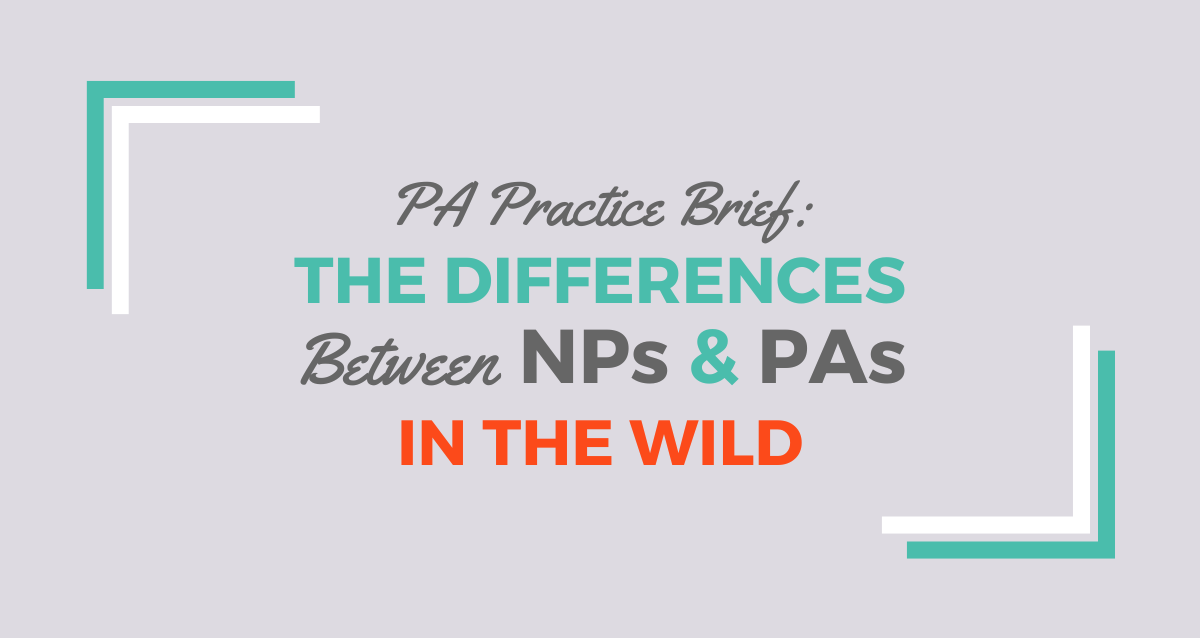The PA profession has been growing in Canada since the opening the first civilian PA programs in 2008. In the US, the PA profession often tops "best jobs" and "fasting growing" career lists as interest in PAs has soared in recent decades. But, outside of North American, PAs are hard to find. However, other countries are looking to explore how PAs might be utilized within their health care systems.
The UK, where PAs exist by the growth has been slow, it one of these places. The National Physician Associate Expansion Programme (NPAEP), a specialist NHS program, was created to expand the number of physician assistants (called “physician associates” in the UK) working in the NHS. The program’s aim was to recruit 200 PAs from the US for placement throughout England.
The goal of the program is to build the case for further expansion of the profession in the NHS by increasing the number of qualified and experienced PAs working in the UK. NPAEP recruited 25 American-trained PAs and 2 UK-trained PAs to work in hospitals throughout the UK.
Participating PAs are working in medical specialties including:
Oncology
Surgery including vascular, orthopedics, hepatobiliary and gynecology/oncology
Pediatrics
Emergency medicine
Acute medicine
Physical and rehabilitation medicine
Cardiology
Gastroenterology
Respiratory
I recently spoke with Nataly Silva and Kevin Krise, two US-trained PAs currently working in the UK about their experience in the program.
Can you both introduce yourselves and give a little background for the readers?
Nataly:
I'm Nataly Silva. I completed a combined bachelors and master’s program in Physician Assistant Studies at Philadelphia University in 2007. I then started my first PA position with MD Anderson Cancer Center in the GI Medical Oncology department where I worked for nearly ten years. Currently, I'm working the Emergency Department for Warrington Hospital, which is located in the northwest of England.
Kevin:
My name is Kevin Krise and I’m a physician assistant who graduated from Duquesne University in Pittsburgh, Pennsylvania in 2005. After completing my physician assistant training, I went onto complete a post-graduate oncology fellowship at MD Anderson Cancer Center in 2006. After that I time, I worked as an inpatient PA initially for the GI Medical Oncology and Breast Medical Oncology departments. I finished my time at MD Anderson working in outpatient GI Medical Oncology. I am currently working at the Clatterbridge Cancer Center in the Liverpool region.
What drew you to participate in the UK program?
Nataly:
I'd have to say that after working nearly ten years at my previous job, I was definitely ready for a change. The prospect of taking on a new role that would help expand the PA profession abroad was definitely very intriguing to me. The other things that I considered were the opportunity to work within the NHS, living abroad, and of course the possibility to travel as much as I could within Europe.
Kevin:
I found it exciting to think about living and working abroad. Working in a profession that's really only best established in the United States, having this opportunity to move to the UK and work seemed appealing and like quite an adventure. I enjoy my role as a physician assistant and seeing the importance of it in the US healthcare system, I thought it would be a unique opportunity to potentially show those same benefits of the role and enable its expansion in the hospitals in the UK.
Can you describe your general duties in your current role?
Nataly:
Currently as a physician assistant in the emergency department, I see patients with different conditions as they present to the emergency department. I suggest investigations and formulate a treatment plan based on the results, but I have to discuss all of my patients with a senior doctor for orders to be written for medications or any testing that involves radiation, like x-rays or CT scans. I have also floated in other departments including pediatrics, urgent care, resuscitation, and minor injuries. Along with my patient care duties, I'm also assisting with mentoring PA students that are undergoing training in Liverpool who are rotating through the department.
Kevin:
In my current role, I provide support to both the inpatient and outpatient settings at the Clatterbridge Cancer Center, mostly supporting outpatient clinics. I focus on GI-specific disease sites by working in an upper GI clinic, colorectal clinic, anal cancer clinic, and a hepatobiliary/pancreatic clinic. In addition to that, I also am part of a quality improvement project where I run a clinic myself doing tele-consultations with upper GI cancer patients who are undergoing long-term surveillance. In addition to my clinical duties, I regularly precept physician associate students at my hospital who are on clinical placement from the University of Liverpool. I also provide other educational sessions where I teach junior doctors about upper GI cancers.
Are other PAs working with you at your hospital?
Nataly:
Yes. We started with five US trained PAs. At the moment we have two, including myself.
Kevin:
I'm the sole PA at my trust hospital.
What have you found to be the biggest differences in working as a PA in the UK compared to when you worked as a PA in the US?
Nataly:
For me, the biggest difference definitely is the inability to prescribe and order imaging, which is something that we can do as PAs in the US. In order to try to overcome that limitation, I've basically had to forge good relationships with a lot of the physicians, including junior and senior doctors.
I think with regard to the NHS, there are a lot pressures to meet target times and understaffing is an issue, which can sometimes make it quite difficult when trying to treat patients. We are expected to take on duties including drawing blood, placing IV lines, and administering medications, which are normally done by other staff members when working in the US, so we're really pressed for time. This tends to draw my attention to one or two patients maximum at a time, so I'm not able to juggle as many patients at a time or able to see as many patients in a shift as I did when working in the States.
When it comes to the familiarity of patients with PAs, I'd say that most patients don't know what a PA is. Oftentimes, they don't question it, ask what a PA really does, what my role is, or even if they're going to see a doctor. From what I’ve experienced, patients pretty much have full trust in all medical providers. I've never had any negative experiences with them not being comfortable with my role.
Kevin:
I think working in the UK, even though in both countries we speak English, there is certainly a kind of a barrier at first learning some of the different terminology, including medical terminology. For instance, they don't call an IV an IV. It's called a cannula. A BM is glucose measurement, which is not what we would normally interpret that to be in the US. That was certainly something to overcome.
The NHS in itself is a very different health system compared to that in the United States. Each and every citizen in the UK is guaranteed equal access to healthcare. I think working in oncology, certainly I see that the care provided here is very evidence-based. There's little room for the oncologist to get creative with chemotherapy regimens like I experienced a bit working in the United States where we could make arguments for certain regimens with insurance providers.
I think one of the other things I notice here is that patients tend to stay hospitalized much longer because certain outpatient home care services, like IV fluids and IV antibiotics, are not regularly available. So that tends to keep patients in the hospital a bit more.
In the UK, the profession lacks a regulatory body for the physician assistants or, as they're termed here, physician associates. There's nobody to grant prescriptive authority. It certainly has been one of the biggest challenges practicing.
As a PA with a bit over 12 years’ experience, working in a setting where I can't prescribe medications or order any diagnostic imaging that uses ionizing radiation has felt limiting. Working in oncology for so many years, I was able to manage side effects like nausea, constipation, and diarrhea very easily in the US. Here, even managing very common issues requires me to speak to a prescribing doctor or prescribing nurse to be able to get the necessary medications for patients.
As for familiarity with physician associates in the UK, before me, I don't believe that a lot of people at my current hospital had worked with a PA or had any idea of what a PA could potentially do. There is a lot of sensationalized news stories being published here about the PA profession that are calling physician associates “doctors on the cheap” and presenting it as though we’re trying to take over the training doctors’ or other doctors' jobs.
Again, the majority of the doctors and nurses that I've actually worked with over the last year and a half have had a different experience once they've actually met and worked with a trained PA.
When it comes to patients, most of them have no idea what a physician assistant is and they're often quite surprised to see an American as part of their healthcare team. Patients are very used to not seeing their attending physician. They are often treated by junior trainee doctors, registrars, and a lot of specialist nurses. I haven't really met too much resistance in caring for patients. I think they're often happy to be seeing somebody and, I think, interested to talk about the profession and certainly the differences between healthcare in the US and in the UK.
Where do you think PAs fit (or could fit) into the structure of medical practice at your hospitals?
Nataly:
As far as the emergency department goes, the US-trained PAs have been very much accepted and well integrated, which took some time as the staff learned what our capabilities were and gained confidence in our clinical skills. We work side by side with junior doctors and are treated just the same of them, many of which are in different levels of their training. A large portion of the doctors that work throughout the hospital are locums or training doctors who often rotate through different specialties. PAs could really help provide continuity of care for patients who are otherwise be seen by different doctors each day.
I think that PAs could fit into many different areas of the hospital. Other departments where there haven't been any US-trained PAs have been a little bit more resistant to the idea as they've not been able to see what a PA can offer to their department. I think in general there is a push and now a desire from other specialties who have heard from those who have worked with us in the emergency department to try to integrate PAs into these other specialties.
I really see the potential for PAs to work across many different areas, so long as there are senior doctors willing to take on the supervising role, which I feel is the biggest challenge.
Can you explain the junior/senior doctor structure in the UK?
Kevin:
Medical school is five years long. Then when they finish medical school, then they become what's called a “foundation year 1.” It's similar to probably a resident, when physicians are just coming out and getting started. Then they complete foundation year 2. Then, depending on where they decide to go from there, they can go into what's called GP training, which would be comparable to general practice, to become more of a generalist family doctor internist.
Or, they go on to what's called “core medical training” for more in-depth medical training and decide on which specialty that they'll go into—whether it's cardiology, respiratory, oncology—whatever the specialty is. Then each specialty has different lengths of time in which they're a registrar, which is similar to probably what the US equivalent of a fellow is.
Nataly:
The registrars are still undergoing their training, and they rotate as well. Really, if they wanted to, they could stop their training and remain registrars if they've not decided yet on which area of medicine they want to pursue. I work alongside a lot of registrars who haven't completed their training yet, and they're very happy where they are and taking on additional shifts for extra pay.
A consultant would be classified as a senior doctor and is the one who is in charge of supervising the PAs. A consultant would be the equivalent of an attending physician in the US. Everyone else who is along the spectrum of their training is considered a junior doctor.
How is the training of PAs in the UK different than in the US?
Nataly:
Well, I think for one, in order to grow interest in the PA profession here in the UK, PA school is something that students are being paid to do. They're being given a stipend in order to complete their PA training. I think the focus on pharmacology is pretty limited. According to the training that's listed on the website, students are supposed to have some kind of pharmacology. But, speaking to the PA students that have rotated through my department, they really don't get much of it. I think it really should be considered since the push is to eventually to obtain prescribing rights for PAs once the profession is regulated.
Kevin:
In the UK, the students complete a basic science degree, which is similar to what happens in the United States. Then they go on to complete two years of actual PA-specific training. I think all of the models are based off of what's happened in the United States, although I don't think that they always meet the same standards.
In the United States, there's the Accreditation Review Commission on Education for the Physician Assistant, or the ARC-PA, that evaluates and accredits PA programs. Nothing like that exists currently in the UK. As a result, I think there's great variability in the quality of programs from one area to another throughout the country.
I think one of the big pushes in the UK has been to rapidly increase the number of practicing PAs partly to promote the profession but also to meet the demands of shortages in healthcare providers. In this rapid increase in the number of PAs, they've created programs quickly, sometimes in four months’ time. I think the quality of a program can suffer as a result.
I think another issue is that since there aren't that many practicing PAs, it's not as though PA students are being trained by PAs in every program. I think that can confuse some students as to what they're actually going to be doing in practice.
At the completion of their training, PA students sit for a national exam, just like we do in the United States. There's a multiple-choice exam, which is what we've been doing in the United States now for some time with the PANCE. They also complete an objective structured clinical example, or an OSCE, at the time of their initial certification, which includes completing 14 stations as a component of the exam. That's a bit different than in the United States.
I think because of the push to get students into the programs, it’s definitely not as competitive to gain acceptance. I think the thought process for some folks is to say, "Hey, I guess I'll do this program for two years and get paid to do it, and if it works out, it works out. If it doesn't, it doesn't." I think you don't get necessarily as many students that are as engaged and as motivated as the PA students that I've precepted and worked with in the US.
What's been the best part of your experience so far?
Nataly:
For me, professionally, I think it has been finally reaching a point where I've gotten a lot of positive feedback from colleagues and doctors and having people in other departments asking me to come and work with them and be a part of their team so they could see how PAs could help their departments work a little bit better. That's always kind of reassuring that the purpose of me coming here has maybe been fulfilled. Personally, definitely all the travel that I've gotten to do and everything that I've gotten to see while I've been here, I think has been very rewarding.
My favorite place would have to be Spain. I say Spain because I've gone back twice already.
Kevin:
Certainly, there's been a lot of personal and professional growth that I've experienced while I've been here. I think when you're the only PA in a hospital that's never experienced working with a PA, you have to have some thick skin to answer all of the questions about your role and explain yourself. But, I think it's allowed me to become a leader within the hospital. I think that folks have really started to see the potential benefit of the role based on my performance here, and certainly people are asking me to stay beyond my two-year contract, which I think is a sign that I've done a good job promoting the physician assistant role. My trust has decided to hire two PAs to work as well. That's been a rewarding part of the experience.
Now, when it comes to personally, certainly the adventures and the travel that I’ve been able to experience have been by far one of the best things I could have done in my life. Getting to travel to Europe cheaply and easily and see so much—it's been great.
My favorite place? I really liked Portugal as a country pick. Favorite city—Barcelona.
What's next for you?
Nataly:
Recently, I've helped with completing interviews for the PA students that are going to be hired to work in my department. I’m starting to create a training module for when they start. I should still be here when they start so that I can overlap and assist with their mentoring as they get used to things. After that, the plan is to go back home. I'll probably go through some travel withdrawal when I leave, but I'm looking forward to being back home in the States.
I've enjoyed emergency medication a lot. I like the variety that I get to see with patients. In the last 18 months, I've become a lot more confident in my ability to take care of all of the different patients and presentations that walk through the door. I think it would be a challenge to work in emergency medication in the States, but I'd be up for the challenge and seeing what that's like. I do miss oncology, and I jump at the chance of seeing cancer patients that come into our emergency department.
In an ideal world, I'd love to work as an emergency medicine PA in an oncology hospital, but we'll see what kind of opportunities I have when I'm ready to go back.
Kevin:
Hopefully over the next few months I'll be able to help mentor and train the newly started hired UK-trained PAs at my trust. I'm looking forward to returning to the United States in early July and hopefully continuing to practice clinically in oncology. After completing a residency and working in oncology all these years, I know it's my passion and I can't really see myself doing something else. The other aspect I'd like to explore a bit more is perhaps taking on a greater role as a PA educator, whether that's continuing to precept and mentor students or perhaps becoming a bit more involved in university teaching. I've enjoyed that aspect of doing that a bit here at the University of Liverpool. I think it could be another passion of mine when I return to the States at some point.
As of now, the PA profession lacks a regulatory body in the UK and, therefore, there’s not a way to ensure standards of practicing PAs. This is the reason behind PAs not having prescriptive authority or the ability to order diagnostic imaging.
However, the Faculty of Physician Associates (part of the Royal College of Physicians) who creates and administers the certifying examination for PAs in the UK (similar to NCCPA in the US) has developed a Managed Voluntary Registry.
While not compulsory, the registry helps to create standards for PAs to meet continuing education and minimum competency. The government is at work deciding which medical body should regulate the profession, but this is a slow process and has been slowed further by the recent development of Brexit.
If you’re a PA interested in working in the UK or abroad, these resources may help you get started:
Faculty of Physician Associates (Royal College of Physicians in the UK)
Physician Assistants for Global Health











